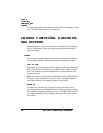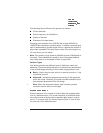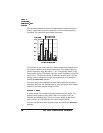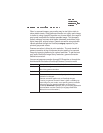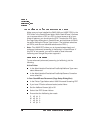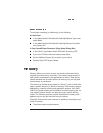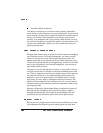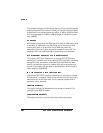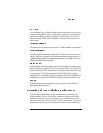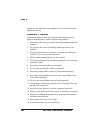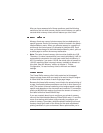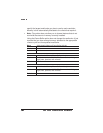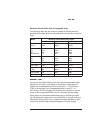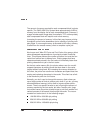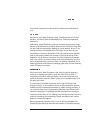
The number and type of features you can run on your printer simulta-
neously depend on the amount of RAM you have and how that RAM
is distributed. Your printer comes with either 12 MB or 24 MB of RAM,
but it is upgradable to 64 MB by adding Single In-line Memory Mod-
ules (SIMMs).
Also called a virtual disk, the RAM disk is an area of RAM that is used
to simulate an additional hard disk. Data can be written and read
more quickly than on a hard disk, but a RAM disk loses any
information stored on it when the printer's power is turned off. The
spooling buffer is a RAM disk client if a hard disk is not available.
The printer’s SCSI port (located on an optional IDE-SCSI board)
allows you to connect up to three optional SCSI hard disks, providing
storage for fonts, emulations, and other files. Hard disks are also
used to increase the amount of collation that can be accepted and
provide a secondary storage area for spooled data, while providing
virtual memory capabilities.
The optional IDE-SCSI board also allows you to connect an internal
IDE hard disk. “Integrated” refers to the fact that all of the controller
electronics are on the drive itself, so no separate adapter card or
expansion slot is required.
This type of memory is cleared when the printer is turned off. For
example, most RAM is volatile.
This type of memory is not lost when the printer loses power.



